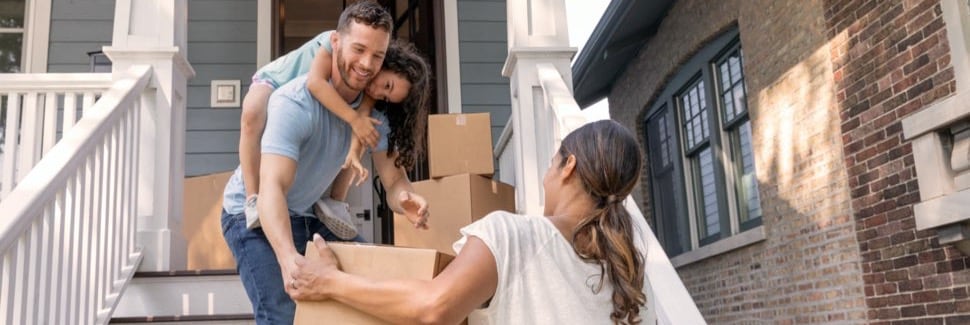Key takeaway
Pay close attention to key details associated with closing, such as when to make your wire transfer or where you’re storing your paperwork, to help avoid unwanted delays.
Navegó a una página que no está disponible en español en este momento. Seleccione el enlace si desea ver otro contenido en español.
Página principal
Key takeaway
Pay close attention to key details associated with closing, such as when to make your wire transfer or where you’re storing your paperwork, to help avoid unwanted delays.
The seller has accepted your offer on your first home, you’ve applied for your mortgage, and you’re excited to start the countdown to closing day. In a perfect world, closing should be smooth sailing and no delays — a few signatures along a few dotted lines, and you can start creating memories in your new home. However, doing some prep work before closing may help you avoid unwanted delays. Follow these five tips, and you may improve the chances that your big day will take place without a hitch.
Challenge:
It can take about a month for your lender to gather all of the documents needed to secure your mortgage. While this can be a seamless process, it is not uncommon for a lender to request an additional document in the final days before closing. If you don’t have that additional document handy, it could delay your closing date.
Solution:
Keep all of your relevant documents handy and organized — from bank statements to tax returns to old rental agreements — and check in with your lender weekly to ensure they have everything they need.
Challenge:
The title company (or an attorney) could uncover an issue during the title search process. Issues could range from minor — such as incorrect or missing signatures — to major problems such as outstanding liens against the property.
Solution:
You should request a copy of the title from your lender or the title company. If any issues are uncovered, consult your real estate agent and/or attorney immediately to determine your best course of action. If the seller cannot resolve the issues, you may decide not to go through with the purchase. Title insurance, which you purchase at closing, will help protect you and your lender from financial loss due to any issues that were missed during the title search.
Challenge:
If you’re a first-time homebuyer, a down payment is likely the largest sum you’ve transferred in your life. Did you know that many down payments have to be wired to a title company or closing attorney? This can take a full 24 hours. If you are allowed to pay by check, it will need to be a certified check or cashier’s check, which you’ll need to order from a bank or credit union (in the proper amount) before the closing date.
Solution:
Be sure you have an accurate final closing amount from your lender. Initiate the wire transfer to the correct third party a few days in advance of your closing day to ensure that it’s received and approved before closing. If paying by certified check or cashier’s check, know who you need to make the payment to.
Challenge:
You notice some issues during the final walk-through. Maybe a repair agreed to after the home inspection wasn’t made. Or maybe there’s a large dent in one of the walls that had been hidden behind a painting. Whatever it is, the negotiation to repair the flaw could take a few days.
Solution:
Have an action plan for addressing final walk-through problems. A plan helps you decide whether or not you want to accept and pay to fix flaws after you buy the home or negotiate compensation for or correction of them. Final negotiations on repair issues can be resolved with a credit on the closing fees or a contract for services to fix the issue.
Challenge:
A small inconsistency like a misspelled street name could cause a red flag that takes hours or days to fix. Sale and mortgage agreements are legal documents, and there’s no room for errors.
Solution:
Make sure that everything is consistent and correct in your legal documentation. If your legal name is listed as Matthew on all papers, don’t sign your name as simply “Matt” on one document. Make sure all names are consistent throughout and double-check for typos.
Related articles

There are several items and documents you’ll need to bring to your closing. Talk to your lender about exactly what you’ll need.

Being turned down for a mortgage doesn’t end your dream of owning a home. There are many reasons a loan application might get a “no” that can be addressed.
1-877-510-2079
Mon – Fri: 7 am – 8 pm
Sat: 8 am – 6 pm
Central Time
1-800-357-6675
Mon – Fri: 7 am – 10 pm
Sat: 8 am – 2 pm
Central Time
Wells Fargo Home Mortgage is a division of Wells Fargo Bank, N.A.
LRC-1223
